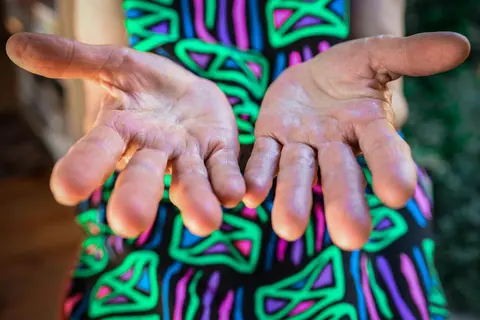Reclaiming our financial power as young people
Values & Money“We need to give up on the belief that keeping up with every social media trend is a necessary part of social acceptance. Materials fail and they aren't here for a long time” – Masia Maponya

We currently live in a world where the relentless pursuit of "luxury" items, using debt for everyday purhcases, and being influenced to make impulse buy have been normalised, especially among young people. We all want to “unbox” the latest gadget and clear our carts, but no one is ready to have a conversation about the impact this has on our finances and the way we think about money.
The Money Values team alongside youth development lab, Lucha Lunako invited around 20 young people who are part of their workplace readiness and internship programme to watch Nothing for Mahala in hopes of inspiring them to make good financial choices this festive season and beyond.
We all know that December is full of over indulgence and excessive spending, but many of us don't actually have money to spend, which is why we rely on constantly borrowing money to keep up with the Motsepes.
How to move away from a world that's driven by materialism
Healtlines community mobilisation facilitator, Tshepo Sithole says that “a huge portion of our lives is driven by materialism and our need to look the part”. Lucha Lunako intern, Masia Maponya, says that he was raised in a community where “money is everything”. He says that “money is placed above everything, it holds power and status, but the downfall for a lot us is that we were never taught how to use it and the power and status that comes with having money”.
Tshepo adds that one of the biggest reasons young people make and continue to make poor financial decisions is simply because they “haven’t been taught how to manage money properly". Financial literacy is not a mandatory part of the school curriculum, and many families don't discuss money matters in detail, so without a solid understanding of budgeting, saving, investing, and the consequences of debt, young people tend to make impulsive decisions that seem harmless in the short term but have long-term consequences. For example, by spending money on non-essential items without understanding how to budget or save for future needs.
The impulse to enjoy life now and worry about the consequences later will always be there, but we can choose a different life for ourselves, one that is debt free.
Palesa Mokwena says she “felt validated by the fact that money isn’t the most important thing in life. Your family, friends and connections you make along your way is what matters”.
Click on the link to find out more about our Values and Money programme. You can also download the Values & Money Youth Resource to help you and your family, friends and students start honest conversations about money.







Bonolo Mokua
Bonolo is a multimedia journalist and content creator at Heartlines. She has experience in online and radio media production and helps spread the Heartlines message on multiple platforms.
Featured





